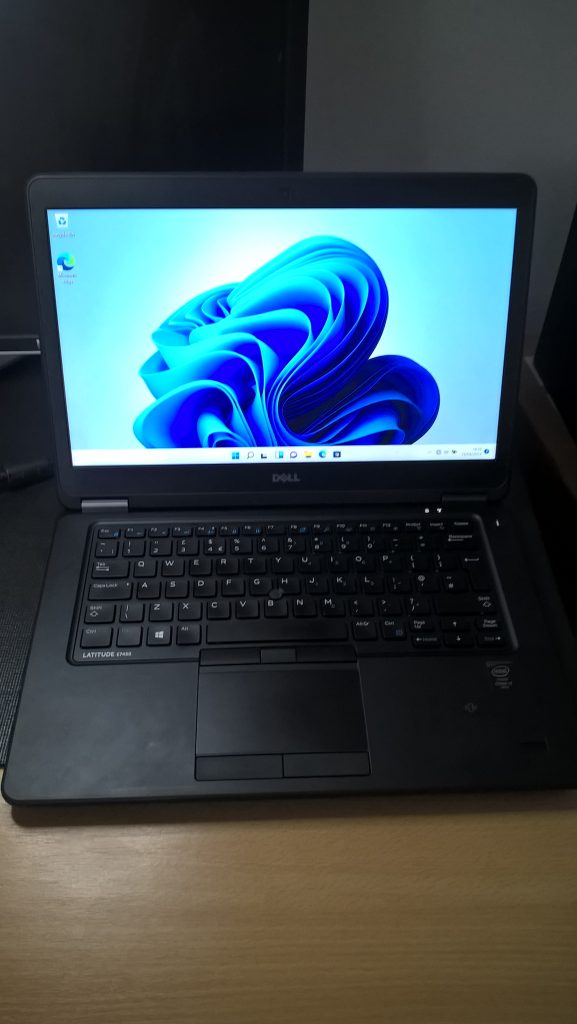Finding the Right Charger for Your Small Laptop: A Comprehensive Guide
In our tech-savvy world, it’s common for people to find themselves repurposing older devices. Whether it’s for personal use or as a backup, small laptops can frequently be gems hidden in the corners of closets, attics, or even at the back of a friend’s storage box. One such scenario unfolded recently on Reddit, where a user expressed their excitement about acquiring a small laptop but faced the dilemma of sourcing an appropriate charger. Their experience, while specific, highlights a common issue faced by tech users everywhere: how to locate the right charger for an older or less common device. This blog post aims to address that central question—how to identify and procure the right charger for your laptop—while also delving into the importance of using authentic and safe charging accessories.
Understanding Laptop Chargers and Compatibility
Laptop chargers may appear similar on the outside, but their specifications can vary significantly. Each laptop brand and model often requires a specific voltage, amperage, and connector type. Here are several key aspects to consider when identifying the right charger for your laptop:
Voltage and Amperage
When it comes to chargers, voltage (V) and amperage (A) are crucial. Voltage refers to the electrical potential difference driving the current through the laptop, while amperage measures the current’s strength. The combination specifies the power (in watts) that the charger can deliver.
- Power Ratings: Most laptops have a power rating indicated in watts (W), which is calculated by multiplying the voltage by the amperage (W = V x A). If your new laptop has specifications indicating it typically requires a 19V charger with an output of 3.42A, that means the charger should be rated at around 65W (19V x 3.42A).
Using a charger with a lower voltage can lead to inadequate performance, while chargers with a higher voltage may damage your laptop. Therefore, always check the rating of your laptop’s original charger before selecting a new one.
Connector Types
Laptops utilize various connector types ranging from standard barrel connectors to USB-C ports. The shape, size, and pin configuration of the connector are crucial for compatibility.
- Barrel Connectors: These are cylindrical connectors often used by many manufacturers. They come in different sizes, requiring the user to match the precise physical dimensions with their laptop port.
- USB-C Connectors: More recent laptops frequently use USB-C ports that support power delivery, allowing for more versatility in charging capabilities.
If you want to find the right charger, visually inspecting the connector along with the laptop’s port can provide important clues.
Brand-Specific Chargers vs. Third-Party Chargers
When looking for a charger, it’s essential to consider whether to purchase a brand-specific or third-party charger.
-
Brand-Specific Chargers: Purchasing a charger that is recommended by your laptop’s manufacturer ensures compatibility and maintains warranty validity. Brands like Dell, HP, Lenovo, and Apple often sell their own chargers designed specifically for their laptops.
-
Third-Party Chargers: While third-party options can be more affordable, they can pose risks in terms of compatibility and safety. If opting for third-party products, it’s crucial to source from reputable manufacturers with positive reviews.
Researching Your Laptop Model
To find the appropriate charger for the laptop you acquired, begin by determining its model number. This can often be found on a label on the bottom of the laptop or within the battery compartment. If the label is faded or missing, there are alternative methods:
Operating System Properties
- Windows: If the laptop boots up, you can often find the model by navigating to ‘Settings’ > ‘System’ > ‘About’. The model name and number will be listed.
- macOS: If it’s a MacBook, click the Apple logo in the upper left corner, then ‘About This Mac,’ which will also tell you the model.
Online Research
Once you have the laptop’s model number, you can research it online. Websites dedicated to computers, such as the manufacturer’s official support page, forums, or user groups, can be incredibly helpful. Search queries like “model number + specifications” or “model number + charger” can lead you to valuable resources, including user experiences and recommended chargers.
Common Types of Small Laptops and Their Chargers
To illustrate the variety of small laptops and their respective chargers, let’s explore some common examples:
Chromebooks
Chromebooks are lightweight, affordable, and often found in educational settings. Most Chromebooks use USB-C for charging, and it’s essential to ensure the charger you select matches the specifications. A quick search for the specific model such as “Acer Chromebook 14 charger” should yield results about the specific wattage and connector required.
Ultrabooks
Ultrabooks, such as the Dell XPS series or Lenovo’s ThinkPad X1, often feature powerful processors in a slim design. These devices typically require more powerful chargers, often connected via USB-C. Finding an original charger is recommended due to their specific power requirements.
Mini Laptops
Devices like the ASUS Eee PC or HP Stream are known as mini laptops. They are generally underpowered compared to traditional laptops but suitable for browsing and basic tasks. Their chargers often resemble standard barrel connectors, but the voltage and amperage should always be verified.
Where to Find Replacement Chargers
Once you’ve determined the required specifications, the next step is sourcing a charger. Here are several places to consider:
Online Retailers
Websites like Amazons and eBay often have extensive selections of chargers, including brand-specific options and compatible third-party chargers. Be sure to read through reviews and confirm the seller’s reputation before making a purchase.
Local Electronics Stores
Many physical electronics stores carry a variety of adapters and chargers. Bringing your device can help with finding a correct charger that fits both physically and meets electrical specifications.
Manufacturer Support
Don’t overlook the manufacturer’s website. Many brands sell replacement chargers directly. This ensures that you’re getting an authentic product that adheres to the safety standards set for that particular device.
Second-Hand Marketplaces
Consider checking out local classifieds like Craigslist or apps such as OfferUp and Facebook Marketplace. Often, people sell or give away extra chargers or those for devices they no longer use. However, utilize caution by meeting in a safe public space and testing the charger before purchasing.
Importance of Using the Correct Charger
Using the wrong charger can lead to various problems, ranging from minimal performance issues to severe damage. Here are some reasons why proper chargers matter:
Safety Issues
Using the wrong charger can lead to overheating, risking fire hazards. This is particularly true with non-genuine chargers that may be poorly designed or constructed. It’s essential to be vigilant about using chargers that meet or exceed the safety standards recommended by manufacturers.
Reduced Performance
If your laptop is using a charger that does not provide sufficient voltage or amperage, it may not charge effectively. In some cases, your laptop could actually discharge while plugged in, leading to frustration during use.
Battery Lifespan
Using the correct charger helps maintain battery health. Irregular charging through incorrect specifications can reduce the overall lifespan of the battery, resulting in a shorter time before needing replacement.
Conclusion: Remember the Caution Signs
Acquiring a small laptop can be an exciting opportunity, especially for those who appreciate compact devices. However, the excitement can quickly diminish when one realizes they do not have a compatible charger. By understanding the specifications, proper avenues for research, and where to find replacements, you can smoothly navigate this challenge.
While it’s easy to be tempted by the myriad of options available on the market, always prioritize safety and performance by opting for the right charger. Not only will this protect your device and ensure its longevity, but it also instills peace of mind as you rediscover the joys of using a small laptop in a mobile-ready world.
So, for those of you in a similar situation as the Reddit user, remember: it’s not just about connecting a wire; it’s about connecting to safety, performance, and ultimately the joy of using technology efficiently.
Share this content:




Response to “Anyone know what kinda charger this takes?”
Finding the right charger for your laptop can indeed be a frustrating process, especially if it’s an older model or one that isn’t widely recognized. Here are some practical steps you can take to ensure you get the right charger: